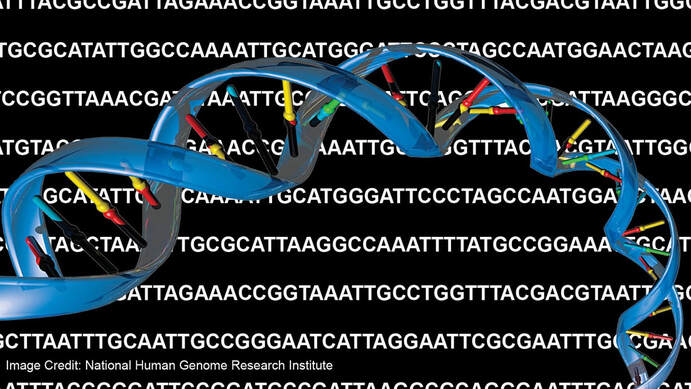|
John writes …
I am composing this in January 2021, a month in which the UK has entered another phase of ‘lockdown’ in order to control the spread of the coronavirus SARS-CoV-2, which causes the disease Covid-19*. Our lives are very restricted but thankfully we are encouraged to go out in ones or twos or small household groups for exercise. I have had much more time to observe and consider the natural world in a different way from research work in the lab. Going out regularly in the same locations, whether on foot or by bike makes me very aware of the cycle of nature. Days are already 30 minutes longer than at the winter solstice. The buds of deciduous trees are beginning to exit from dormancy and some cold-tolerant plants and trees have started to flower. The annual cycle of seasons was of course also known in Biblical times although the specific reasons for the seasons (the passage of the Earth around the Sun, coupled with the tilt of the Earth’s axis) were not known. Indeed, from early in human history, any group of people who did not live close to the equator (where daylength is constant or nearly so) would have been aware of the annual changes in season and the resultant changes in the biological world, including new growth, flowering and fruiting, bird migration and so on. In the Bible we can also see a sense of wonder at the natural world. Psalmists were amazed and in awe of the starry heavens; Job wrote extensively and wonderingly about both physical and biological aspects of nature; Jesus himself talked about the beauty of wild flowers. And we, many centuries later, also react in awe and wonder as we know about and understand so much more about our planet and the ‘balance of nature’ thereon (see especially Chapters 5 and 8 of the book). Indeed, as I have described in the Preface and in another blog (Magic and Metamorphosis), my wonder in response to the natural world was one of the factors that led me into science. All this brings me to the BBC, Britain’s national non-commercial broadcasting organisation. Currently, they are running a weekly series (five episodes in all) called A Perfect Planet, with commentary by ‘national treasure’ David Attenborough (see BBC One – Introducing A Perfect Planet and also BBC iPlayer). The filming is truly wonderful, bringing us everything from volcanic eruptions through ecosystem dynamics, predator-prey relationships to the minutiae of certain plant-animal interactions. In the latter category we learn about the role of the fig wasps in pollination of figs (Ficus species). It is a story as specific as, but even more bizarre than the pollination of Yucca that we describe in Chapter 8 (see Fig wasp | insect | Britannica). In the TV programme, we learn about the essential role of tectonics and volcanoes, about being the right distance from the sun (the Goldilocks zone). We learn that ‘Our planet is one in a billion’ and that … ‘incredible, awe-inspiring life is driven by its natural forces’. And, in the final episode we will learn about what humans have done to the balance of nature, leading to the ecological crisis and the climate emergency. Overall, it is as if someone at the BBC has read From the Big Bang to Biology … and has set out to make a wonderful film of the book. But there is of course one thing missing. One of the features that comes over strongly in the films is a sense of awe and wonder that is almost religious in tone but there is no mention of God. This is not a criticism of the programmes - they are not part of the BBC’s religious broadcasting – and yet we wonder whether the sense of awe and wonder that comes over so strongly will lead to any viewers, or indeed, any members of the production or presentation teams, to ask deeper questions, questions that require more than science and good filming to reach an answer. John Bryant Topsham, Devon January 2021 ____________ * This raises the difficult topic of disease and suffering. I do not deal with it here but readers may be interested to look at Café Théologique an online interview: A God of Genes and Viruses - Prof John Bryant. See also Perfect Planet: A Statement in Response - Ruth Valerio.
0 Comments
 You may be surprised to learn that this brief contribution is about something that happened 19 years ago. So, you may also be asking why would this be of interest to anyone after all this time? For me, the events that occurred in November 2001 were the first tremors which heralded the personal revelation that there was more to the world than the bits described by the physicists. The shockwaves that subsequently radiated from those tremors were to profoundly change my life. It was then, at age 51, that God chose to reveal Himself to me, and I have no idea why He chose that time in my life, or why He decided to do it at all. Perhaps a bit of back story would be helpful here. I was raised in a loving family that had no explicit faith in God, and consequently church attendance, or any other manifestation of religion, played no part in my up bringing. From a very early age I was captivated by science, which steered my education to culminate in a doctorate in mathematical physics in 1975. Subsequently, I spent a very fulfilling career in space science and engineering, both in industry and academia, before retirement in 2010. However, it was during busy years at Southampton University that I became a Christian. How this came to be was very much related to the issue of ‘science and faith’, and I wish to say something briefly about this transformation in this account. Prior to this extraordinary event, I would have described myself as a tolerant agnostic, firmly entrenched in the notion that science had explained everything to the extent that any form of god was entirely irrelevant. My story starts in the unusual setting of a family holiday in Guernsey in the summer of 2001. Time by the pool gave me plenty of opportunity for reading and thinking, and I experienced a rare, startling insight about the nature of the Universe! This was along the lines of the universe is defined by our existence within it. This is something that these days we call cosmic fine-tuning. The argument goes that the fundamental constants of the laws of nature have to take very precise values in order that life of any form can exist in the Universe. This kind of notion has been with us for some time in the form of something called the anthropic principle, that can be expressed as – the laws of nature must be constrained to allow human existence. So why the big deal? The startling character of the insight arose because of the degree to which the fundamental constants have to be finely tuned. Most scientists are hard headed about this, and agree that if it wasn’t so we wouldn’t be here to think about it. And they are quite right. But for me, by the poolside, it was the precision of the fine-tuning that was startling. You could say that the Universe is an extremely unlikely place. Put another way, if you saw a well-shuffled pack of cards being dealt in perfect suit and numerical order, you might wonder how this could happen. Was it by chance (odds of 1 in 10^68) or was there more to it? Something behind it? Cutting a long story short, I pondered the options, and after many weeks of reflection I had arrived at a place in which I was comfortable with the notion that there may be such a thing as a Creator God. Given my background, this was not an easy journey but it did put me in a position where I could consider attending an Alpha course at the local church in the Autumn of 2001, and the rest is history as they say. An encounter with the numinous occurred and finally convinced me that there was such a thing as the ‘spiritual realm’. One thing I have learned from all this, and in particular in the context of courses such as Alpha, is that people are convinced not by endless academic discussion of the issues, but rather by the simple means of personal experience of God transforming power in their own lives, and in the lives of others. Read my story in more detail in ‘From the Big Bang to Biology: Where is God?’ by Graham Swinerd and John Bryant (Nov 2020). This blog post is adapted from a contribution to the blog section of the Faraday Churches website. See the original here. |
AuthorsJohn Bryant and Graham Swinerd comment on biology, physics and faith. Archives
July 2024
Categories |

 RSS Feed
RSS Feed
